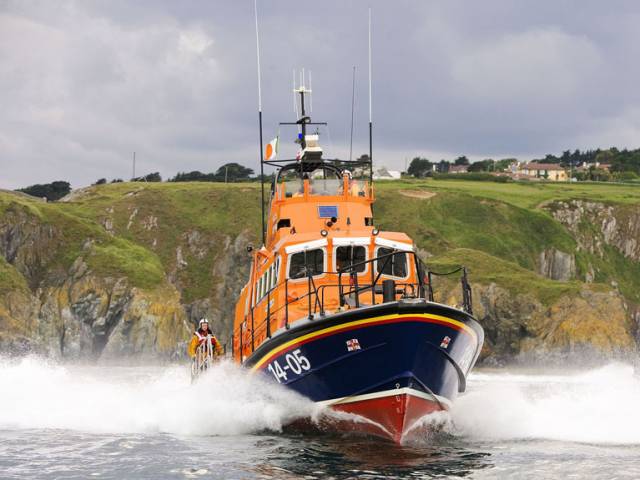The RNLI and the Irish Coast Guard are issuing a joint call this Bank Holiday weekend urging people to be vigilant and to take care on the water and along the coastline. It comes as both organisations note that August was the busiest month for coastal recreational incidents last year. Irish lifeboat crews last August alone responded 217 times to emergencies at sea.
With the summer holidays in full swing, it has been a busy time for the search and rescue agencies and this Bank Holiday weekend, the two organisations are warning people to be vigilant and take heed of some simple safety advice.
While summer air temperatures may be warm, Irish waters rarely exceed 15C, making them cold enough year-round to trigger cold water shock, which causes the instinctive reaction to gasp and swim hard, which can quickly lead to drowning.
As part of its drowning prevention campaign, Respect the Water, the RNLI is calling on the public to help save more lives during this busy period by remembering and sharing key survival skills.
Kevin Rahill, RNLI Community Safety Partner explains: ‘We are now half way through the summer holidays and are approaching what is traditionally a busy Bank Holiday weekend around the coast and on our inland waters. While that hopefully signals an enjoyable time for many – it sadly also means that we can learn of tragedy or hear of people getting into serious danger.
‘We want to start a national conversation that encourages people to fight their instincts around water, so we are asking people to remember and share two skills. The first is, if you see someone else in trouble; don’t go into the water yourself as you may also end up in serious danger. Instead, dial 999 or 112 and ask for the Coast Guard. If you want to help, find something that floats and throw it to them, or shout instructions on how to float until the rescue services arrive.
‘The second is, if you fall into cold water, fight your instincts to swim hard or thrash about as this could lead to drowning. Instead, relax and float on your back, keeping your airway clear, for around 60-90 seconds. This will allow the effects of cold water shock to pass so you can regain control of your breathing and then swim to safety or call for help. Just remembering these two simple points could help save your life, or someone else’s, this Bank Holiday weekend.’
The Irish Coast Guard has two simple messages, to ‘Stay Back, Stay High, Stay Dry’ near exposed parts of the coastline and to ‘Stay Afloat – Stay in Contact’ when at sea.
Gerard O’Flynn, Irish Coast Guard Operations Manager said: ‘While it is important that everyone going afloat wears a lifejacket, it is equally important that every user ensures their lifejackets are regularly serviced.
‘Lifejackets are not fool proof and users should always ensure that they have familiarised themselves on their proper operation and that they are in date for servicing. Anyone going afloat should also ensure they have a means of raising the alarm should they need to and that they ensure someone ashore is aware of their trip and estimated time of return.’
‘Away from the sea, we want everyone to exercise caution when walking on exposed cliffs. Pets should be always kept on a leash and walkers should avoid areas which they are not familiar with. Our message is to stay back, stay high, stay dry.’
































































